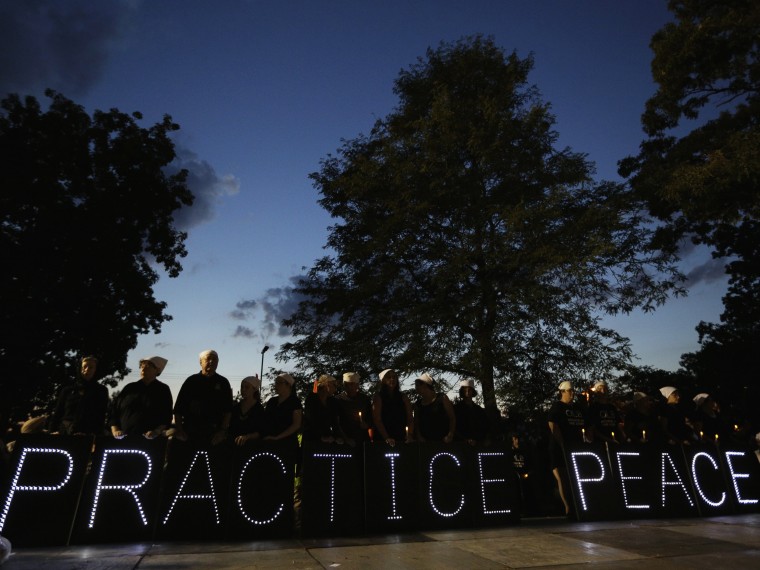Columbia University professor Dr. Prabhjot Singh was attacked Saturday night in New York City in what authorities are investigating as a racially-motivated hate crime, but he said Monday that he would invite his attackers to visit his house of worship.
"If I could speak to my attackers, I would ask them if they had any questions about me, the Sikh faith," Singh, a Sikh-American, said in a press conference Monday afternoon. "I would invite my attackers to the Gurdwara, make sure they have an opportunity to learn who we are, get to know us so that they too can get past this."
Singh is a practicing physician in East Harlem and is also an assistant professor of International and Public Affairs at Columbia, police said he was attacked at 110th Street and Lenox Avenue.
"I heard 'Get Osama' and then 'terrorists,' and then the next thing I felt was someone moving past me, ripping at my beard and then hitting me in the chin," Singh told NBC 4 New York. Singh said he thought he could have died if passersby hadn't intervened to help fight off the more than dozen young men who jumped him.
Singh was discharged early Sunday morning, according to his friend and colleague Simran Jeet Singh, who also told MSNBC.com that the professor underwent several procedures to treat displaced teeth and fractures in his jaw from the attack.
Singh's priority now is to continue his work as a doctor in his East Harlem community, he said. "This is not the Harlem I know," he said. "If anything, [this experience] makes me more committed to our community and the work we do there."
He said he hopes that his one-year-old son will feel supported by both the Sikhs and the wider community and acknowledged the need to break down the barriers that keep people from understanding one another.
The New York Police Department's Hate Crime Task Force is currently investigating the attack. Simran Jeet Singh said the NYPD's response was quick, and that he and others have felt a positive shift over the last year in the way hate crimes against minority communities are treated.
Last month, the U.S. Department of Justice announced it would officially begin tracking hate crimes against Sikh Americans, as well as against Hindus, Arabs, Buddhists, Mormons, Jehovah's Witnesses, and Orthodox Christians.
Prior to that announcement, the FBI classified anti-Sikh violence as anti-Islamic or anti-Muslim—an issue that Simran Jeet Singh and Prabhjot Singh wrote about in a joint op-ed for the New York Times last year following a mass shooting at a Sikh temple in Oak Creek, Wisconsin, that killed six people.
"Discrimination against Sikh Americans is nothing new," Simran Jeet Singh told MSNBC.com, adding that violence against the Sikh community has risen significantly since the 9/11 attacks. He said that a large part of the attacks come from racial profiling, and that the turbans and beards Sikh men sport have become markers used to misidentify Sikhs. "Signifiers of religion have come to be markers of race, so anybody who has dark skin, facial hair, head dresses of any type have come to be regularly associated in modern America with 'the other.'"
After the attack, Simran Jeet Singh said that Prabhjot Singh was not feeling angry or hateful about the attack, and that although justice is important, his top priority is not revenge.
"There's no aspect of fear or anger in our religious system," Simran Jeet Singh said. "There's just no idea of it. When it comes to developing responses to situations, it's just not an option for us to be angry or fearful about what might happen."
